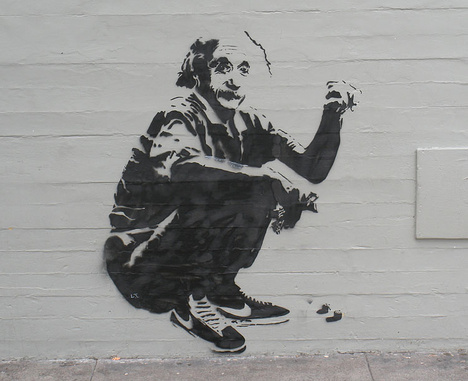God Doesn’t Play Dice. But What About Poker?
October 10, 2010 Leave a comment

Albert Einstein hated… hated… hated quantum mechanics because he said he didn’t believe that God plays dice.
Which brings up the obvious question: what does Einstein have against dice? It’s a perfectly fun game. Did he get ripped off in a back alley craps game? Did he just have bad luck, or dislike cubed objects? The questions are tantalizing.
Anyways, maybe God doesn’t play dice. I think he may use decoherence in a eternal probabilistic game of poker.
Perhaps it’s one way to shuffle the deck and divvy out the next hand? It’s a far more apt description than shaking up the dice. Poker, after all, requires an interaction with the cards to determine a hand. You can bluff. And seek new combinations. Pass and wait for a better hand. There’s some strategy, after all. Dice is more–what you see is what you get.
That would be a far more satisfying–to me, at least–compromise in the determinism and indeterminism debate. In a perfectly deterministic universe, there would be no surprise at all. And how fun would that be? A totally indeterministic universe would be chaotic. I like to call it Parking Lot Physics. Have you ever been in a WalMart parking lot during the holidays. Where is your God there?
But there seems to be evidence for a third way–a mixture of surprise and skill–that drives our universe.
We have a mixture of entanglement and decoherence. Of superposition and shuffling. Of order and entropy.
But whose shuffling the deck? Whose shaking the dice?
That’s for another day.
 The success of quantum computing is tied to the mastering of entanglement. When two particles are entangled, they are deeply correlated.
The success of quantum computing is tied to the mastering of entanglement. When two particles are entangled, they are deeply correlated.